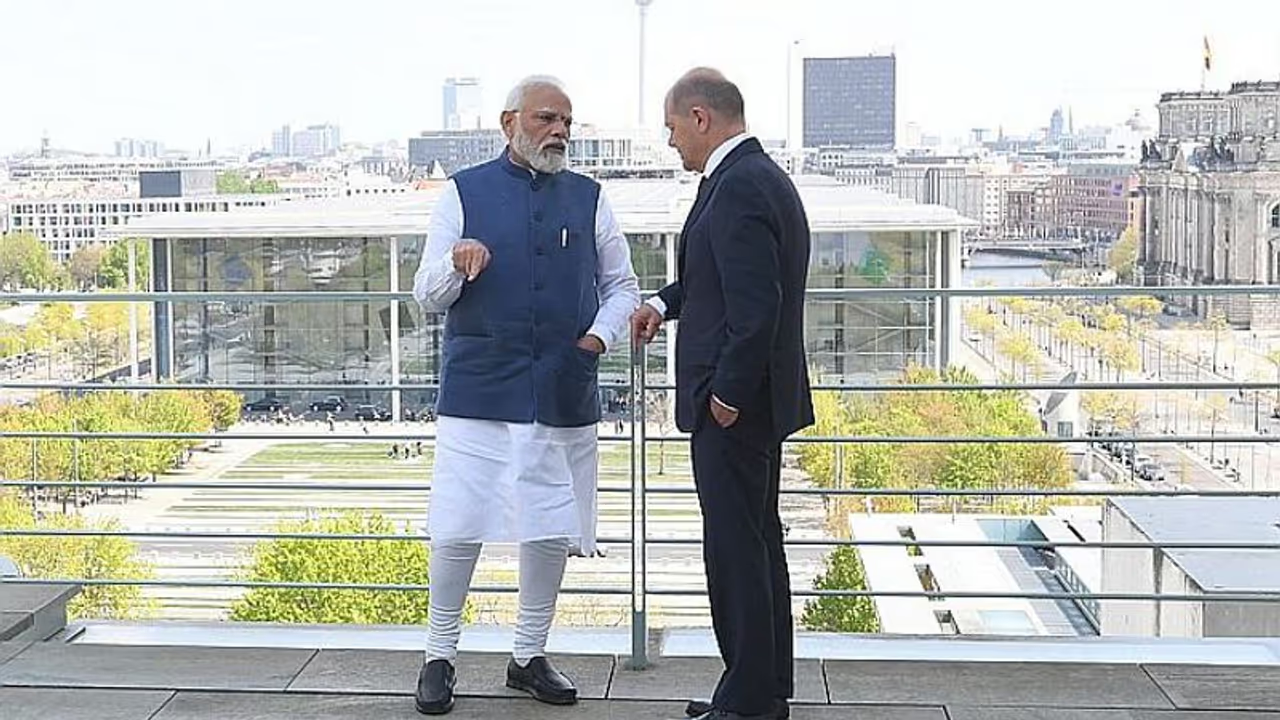India and Germany on Monday held their 6th round of biennial Inter-Governmental Consultations in Berlin, wherein the premiers discussed a range of issues, including bilateral, regional and global developments.
India and Germany on Monday held their 6th round of biennial Inter-Governmental Consultations in Berlin, wherein the premiers discussed a range of issues, including bilateral, regional and global developments.

Let us examine the key takeaways from Prime Minister Narendra Modi's Inter-Governmental Consultations with German chancellor Olaf Scholz
* The two leaders exchanged an MoU on establishing the Green and Sustainable Development Partnership. The pact would envisage a whole-of-government approach to India-Germany cooperation on Sustainable Development Goals and climate action. Germany has committed to providing 10 billion Euros in new and additional development assistance until 2030.
* The two leaders discussed the war between Russia and Ukraine and its impact on the world and poorer countries in particular. PM Modi reiterated the need for dialogue and diplomacy to end the war.
* The prime minister invited German participation in India's Atmanirbhar Bharat campaign.
* At the foreign ministers-level, the two countries signed three MoUs that include implementation of triangular development cooperation projects in third countries, mutual protection of classified information and the establishment of an agreement to establish a direct encrypted connection between their ministries and renewable energy.
* Three agreements were signed in virtual mode, including green hydrogen task force, agroecology and forest landscape restoration.
* At the foreign secretaries-level, comprehensive migration and mobility partnership agreements were signed. This pact would open new doors for employment, higher education and the movement of professionals between the two countries.
* The two leaders stressed the significance of an effective rules-based international order with the United Nations. They reaffirmed their governments' determination to strengthen and reform multilateralism to tackle current and future challenges, defend the fundamental principles of peaceful settlement of conflicts and the sovereignty and territorial integrity of states, and defend peace and stability globally, to bolster international law.
* During their meeting, Berlin reiterated its steadfast support for India’s early entry into the Nuclear Suppliers Group.
* On Indo-Pacific, the two sides vouched for unimpeded commerce and freedom of navigation in accordance with International Law in all waters, including the Indian Ocean and the South China Sea.
* Germany will reciprocate by welcoming an Indian Naval ship on a friendly visit to a German port next year. India had done in January this year.
* The German chancellor invited the prime minister to the G7 Summit to be held last June.
* On Afghanistan, the two leaders expressed their concern about the humanitarian crisis, the resurgence of violence, including targeted terrorist attacks, hampered access to education for girls and women, and the systemic violations of human rights and fundamental freedoms.
* Germany and India also strongly condemned terrorism in all its forms and manifestations.
